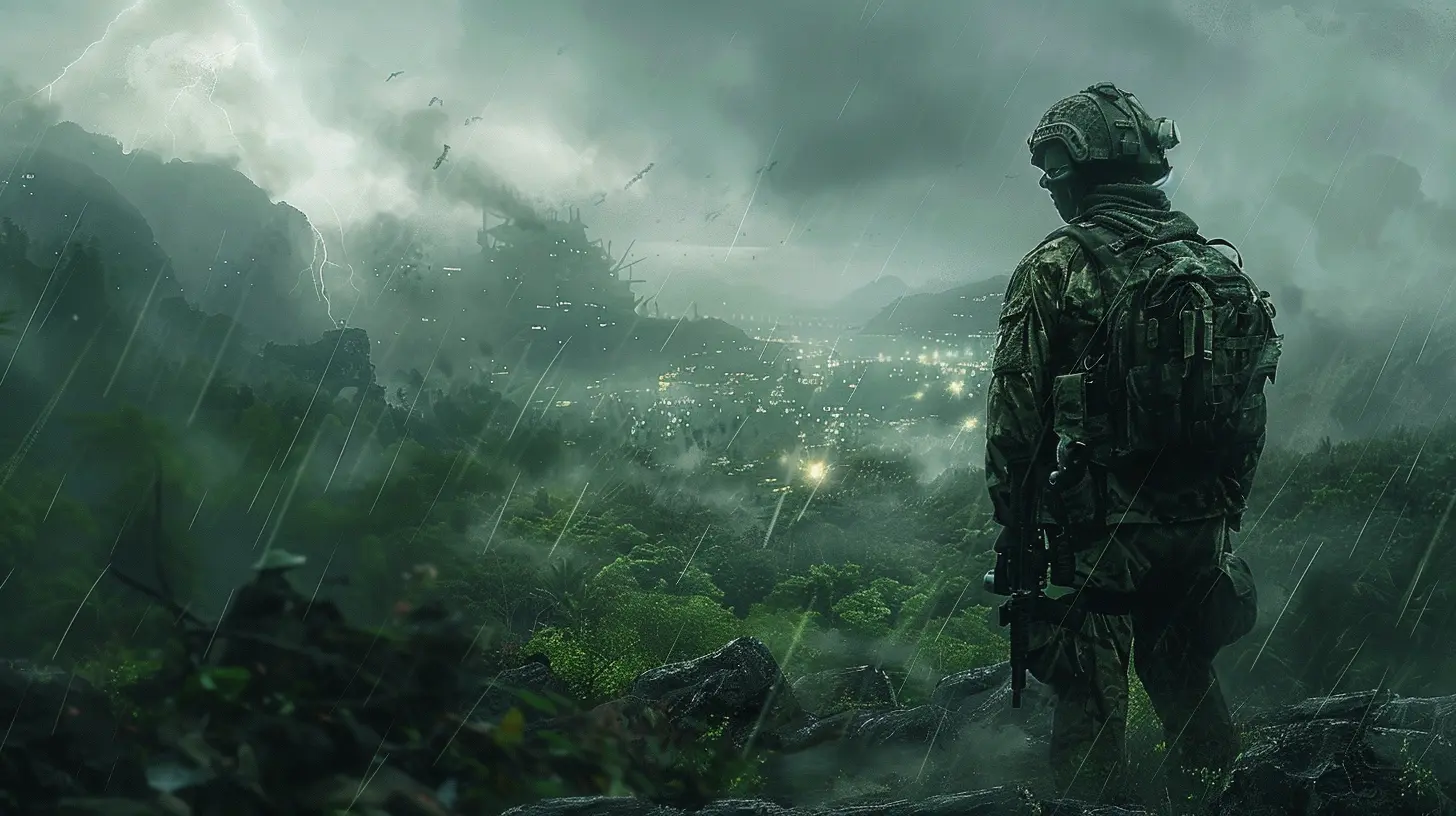Advanced Survival Game Strategies for Veterans of the Genre
9 July 2025
So, you’ve been around the block in the survival game genre. You’ve built your fair share of shelters, scavenged countless supplies, and survived hordes of enemies — whether they’re zombies, mutants, or, well, other players. At this stage, you probably feel like you’ve seen it all, right? But here’s the thing: survival games keep evolving. Developers are constantly adding new twists to keep veterans like you on your toes.
If you want to stay ahead of the curve and bring your A-game to every virtual wasteland you step into, this is the guide for you. Let’s dive into advanced survival game strategies that will take your skills from “seasoned survivor” to “untouchable legend.” 
The Mental Shift: Survival Is a Marathon, Not a Sprint
Let’s kick things off with a mindset adjustment. When you first started playing survival games, you probably approached them like a sprint—scrambling to gather resources, rushing to build shelter, and aggressively dealing with threats. But as a veteran, you know better now.Survival is all about longevity. You’ve got to think long-term. It’s about conserving resources, planning three steps ahead, and knowing when it’s smarter to lay low rather than engage. Treat it like a high-stakes game of chess where your every move either buys you more time or makes your life harder.
Ask yourself: Do I really need to fight that bear, or can I skirt around it and save my bullets? Think strategically, and remember that unnecessary risks will cut your journey short. 
Advanced Resource Management: Stockpile, Don’t Hoard
Let’s get one thing straight: there’s a difference between stockpiling and hoarding. Stockpiling means you’re preparing for the future with intention. Hoarding? That’s when you’re blindly grabbing everything in sight and clogging up your inventory.The key to advanced resource management is knowing what resources are truly valuable and what’s just dead weight. Food and water are non-negotiable, but do you really need ten rusty wrenches when your base only uses one? Probably not.
Tip: Prioritize items that serve multiple purposes. Duct tape, for example, is basically the Swiss Army knife of survival games. Need to patch up your gear? Duct tape. Need to craft a trap? Duct tape. It’s invaluable.
Also, don't overlook tools and resources that allow you to craft renewable solutions, like farming equipment or tools for fishing. Long-term survival is about setting up self-sustaining systems. 
Stealth Is Your Best Friend
As a seasoned player, you’ve probably learned how to handle combat pretty well. But let me hit you with a pro tip: avoiding combat entirely is often the smartest move.Stealth is criminally underappreciated in survival games, even though it can mean the difference between life and death. Sneak past enemies to save health and ammunition. Use the environment to your advantage: crouch in tall grass, blend into shadows, and camp out in high vantage points to plan your path.
Did you know that sound often plays a huge role in enemy detection? Veteran players should always find ways to reduce noise. Walking instead of sprinting and crafting quieter tools can make all the difference. 
Base Building 2.0: Beyond the Basics
Okay, so you’ve got the basics of base building down: walls, a roof, maybe a few traps to keep intruders out. That’s child’s play at this point. Let’s talk about taking your base-building skills to the next level.1. Location, Location, Location: It’s not just about finding a nice flat patch of land. Look for places with natural defenses—cliffs, rivers, or dense forests. Think about proximity to resources, but also avoid overly obvious spots that could attract other players or enemies.
2. Redundancy Is Key: Don’t rely on one entryway or one stash of supplies. A seasoned veteran knows that if an enemy breaches your main entrance, you’ll need backup plans. Build hidden exits, stash extra gear in different parts of your base, and always have an escape route.
3. Camouflage: The best base is the one that no one knows exists. Use the environment to hide your base. Cover structures with foliage or build underground if the game allows for it. Concealment is a form of protection.
Mastering the Art of PvP Survival
If your survival game involves other players, you already know how unpredictable and dangerous it can get. People are, let’s face it, way more chaotic than NPCs. So how do you up your game when the biggest threat is another human player?- Play Mind Games: A veteran survivalist knows how to outthink their opponents. Lay false trails to throw players off your scent, or bait them into traps by leaving behind low-level supplies.
- Pack Light for PvP Zones: When venturing into high-risk areas, only bring what you’re willing to lose. There’s nothing worse than spending weeks gathering the best loot, only to get ganked by some random player hiding in a bush.
- Read the Signs: Pay close attention to environmental clues that might indicate other players are nearby—like an extinguished campfire, looted chests, or recently felled trees.
Most importantly, don’t trust strangers. No matter how friendly they seem, always keep your guard up. The betrayal trope is a survival game classic for a reason.
Advanced Crafting Tricks
By now, you’ve probably memorized most crafting recipes in your favorite survival game. But are you really taking full advantage of the crafting system? Veteran players know that crafting goes beyond just building weapons or tools—it’s about efficiency and innovation.- Upgrade Instead of Replace: Instead of crafting an entirely new weapon when yours breaks, focus on repairs and upgrades. This saves you resources in the long run.
- Experiment With Combinations: Some survival games have hidden or rare crafting recipes. Don’t be afraid to experiment with random items to see if they create something unique. You’d be surprised at what you can discover.
- Prioritize Portable Gear: The best tools are the ones you can take on the go. Instead of crafting a bulky base-only item, look for portable alternatives so you’re always prepared.
Survival Needs: Balance Risk and Reward
Every survival game has those high-risk, high-reward areas—whether it’s a radiation zone filled with top-tier loot or a dungeon crawling with powerful enemies. As a veteran, you need to know how to weigh the risks against the potential rewards.- Prep Like It’s the Olympics: Always go into dangerous areas with the right gear, full health, and a backup plan.
- Time Matters: Consider what time of day or in-game season it is. Nighttime might bring tougher enemies, while certain seasons could limit resources. Choose your moments wisely.
- Cut Your Losses: If things are going south, don’t let pride get in the way. Escape now to live another day—you can always regroup and come back later.
Watch, Learn, Adapt
Above all else, the best survival game veterans are adaptable. The genre is constantly evolving, and new mechanics, enemies, and strategies can pop up at any time. Stay curious and observant.- Watch how other players are adapting to the game. Is there a new meta for dealing with hostile NPCs? Is there a base-building hack you haven’t thought of?
- Learn from your mistakes. Sure, dying sucks, but every failure is an opportunity to come back stronger. Take note of what went wrong and adjust your approach next time.
- Adapt quickly. Survival games, by nature, are unpredictable. The players who thrive are the ones who can think on their feet and shift strategies in the heat of the moment.
Final Thoughts
Survival games have come a long way, and veterans like you are what keep the genre alive and kicking. It’s not just about staying alive anymore—it’s about thriving. With these advanced strategies, you’re not just surviving the wastelands; you’re owning them.So, go on. Build that unbreakable fortress, outsmart your enemies, and prove once again why you’re the ultimate survivalist. The next time someone stumbles upon your base, they’ll probably think, *“Wow, whoever built this clearly knows what they’re doing.
all images in this post were generated using AI tools
Category:
Survival GamesAuthor:

Luke Baker
Discussion
rate this article
2 comments
Greyson Young
Great insights! I especially appreciated the tips on resource management and team coordination. These strategies can really elevate gameplay. Looking forward to trying them out in my next session!
September 10, 2025 at 3:02 PM

Luke Baker
Thank you! I'm glad you found the tips helpful. Best of luck in your next session!
Echo Burton
Unravel the shadows of survival; secrets lie in the unseen.
July 15, 2025 at 4:57 AM

Luke Baker
Absolutely! Mastering the unseen elements can be the key to outsmarting your competition in advanced survival games.


